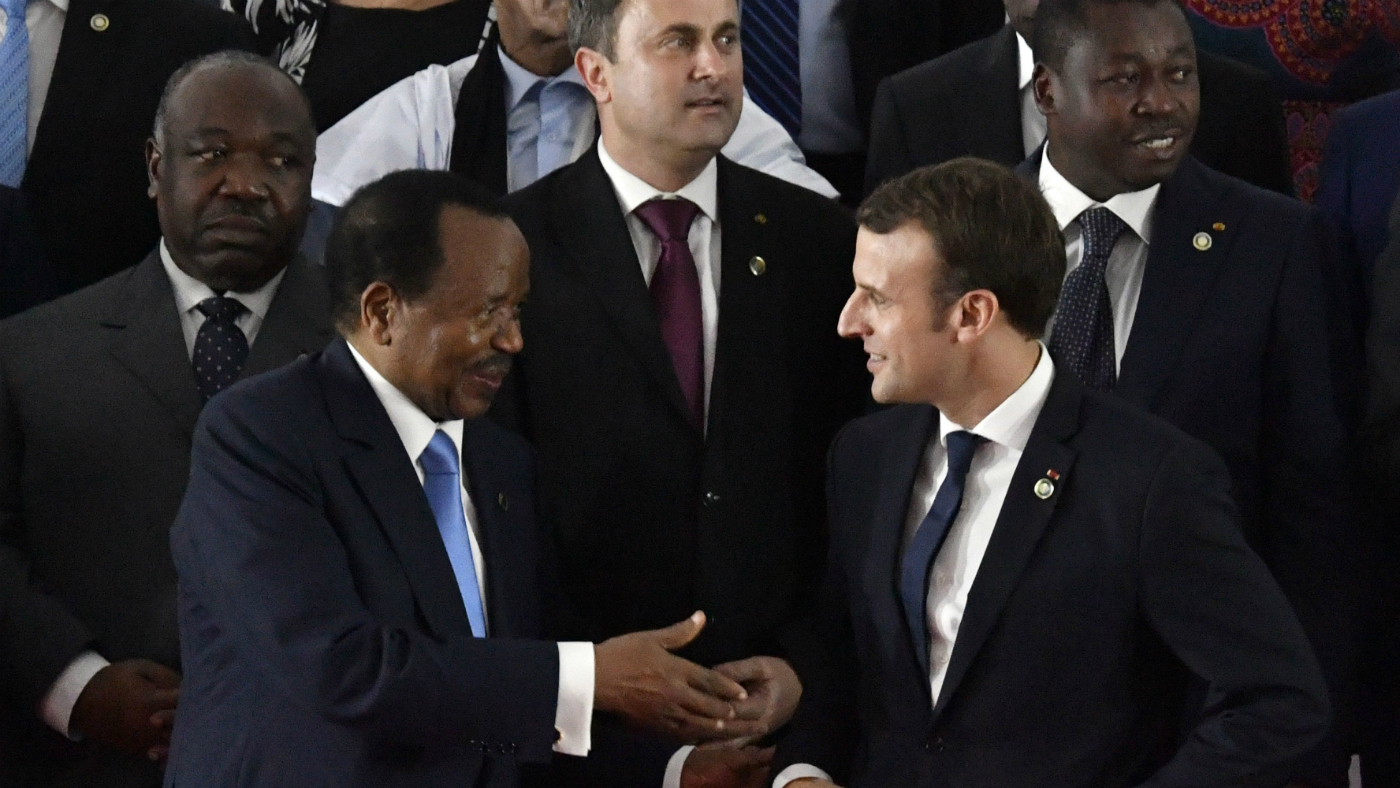Europe-Africa summit: what did it achieve?
A host of pledges were made to tackle the crisis in Libya, but critics say much of it was empty rhetoric

A free daily email with the biggest news stories of the day – and the best features from TheWeek.com
You are now subscribed
Your newsletter sign-up was successful
European and African leaders wrapped up a joint summit in the Ivory Coast yesterday, vowing to take action on variety of issues plaguing the two continents.
Officials touted the high-level meeting between EU and African Union leaders in Abidjan as the beginning of “a new partnership between equals” that would benefit both parties.
However, much of the rhetoric “comes with a dose of deja vu for long-time observers,” says Politico.
The Week
Escape your echo chamber. Get the facts behind the news, plus analysis from multiple perspectives.

Sign up for The Week's Free Newsletters
From our morning news briefing to a weekly Good News Newsletter, get the best of The Week delivered directly to your inbox.
From our morning news briefing to a weekly Good News Newsletter, get the best of The Week delivered directly to your inbox.
What was agreed?
The summit was originally scheduled to focus on economic cooperation and youth employment, but was overshadowed by reports of African refugees and migrants being sold at slave auctions in Libya.
Speaking ahead of the meeting, Ivorian President Alassane Ouattara warned that leaders would have to do more than condemn the “disgusting” and “unacceptable” practice.
“The inhumane treatment of migrants challenges us, requiring responses which match our condemnation,” the host said.
A free daily email with the biggest news stories of the day – and the best features from TheWeek.com
By the end of the summit, the leaders of Libya, France, Germany, Chad, Niger and four other countries agreed to attempt “a massive and imminent evacuation” of migrants who are trapped in the camps, the Washington Post reports.
“The plans drafted Wednesday indicate that the first evacuation push will target 3,800 migrants,” most of whom will be returned to their home countries, the newspaper says.
French President Emmanuel Macron said the deal also included a fresh promise from the Libyan government to address the problem, as well as a joint pledge from the EU, AU and UN to freeze the assets of human traffickers and increase support for the International Organisation of Migration.
What was lacking?
Geert Laporte, deputy director of the European Centre for Development Policy Management, said many of the promises made at this year’s summit have been made before.
“I recognise the same hollow wordings of mutual trust and comprehensive partnership,” he told Politico.
Youth groups also claim they were sidelined completely from the conference, the EU Observer reports. A German youth advocacy group, DSW, due to talk at the summit, said young people from both continents were denied the platform they were promised.
“Youth were prevented from speaking - at a summit all about youth! It beggars belief,” a representative said.
The Washington Post argues that the summit’s original focus – boosting economic development in Africa and tackling youth unemployment – is the only real solution to the migration crisis.
“Stopgap measures like evacuations have little to do with [its] underlying causes,” the paper says.
-
 5 cinematic cartoons about Bezos betting big on 'Melania'
5 cinematic cartoons about Bezos betting big on 'Melania'Cartoons Artists take on a girlboss, a fetching newspaper, and more
-
 The fall of the generals: China’s military purge
The fall of the generals: China’s military purgeIn the Spotlight Xi Jinping’s extraordinary removal of senior general proves that no-one is safe from anti-corruption drive that has investigated millions
-
 Why the Gorton and Denton by-election is a ‘Frankenstein’s monster’
Why the Gorton and Denton by-election is a ‘Frankenstein’s monster’Talking Point Reform and the Greens have the Labour seat in their sights, but the constituency’s complex demographics make messaging tricky
-
 Epstein files topple law CEO, roil UK government
Epstein files topple law CEO, roil UK governmentSpeed Read Peter Mandelson, Britain’s former ambassador to the US, is caught up in the scandal
-
 Iran and US prepare to meet after skirmishes
Iran and US prepare to meet after skirmishesSpeed Read The incident comes amid heightened tensions in the Middle East
-
 Israel retrieves final hostage’s body from Gaza
Israel retrieves final hostage’s body from GazaSpeed Read The 24-year-old police officer was killed during the initial Hamas attack
-
 China’s Xi targets top general in growing purge
China’s Xi targets top general in growing purgeSpeed Read Zhang Youxia is being investigated over ‘grave violations’ of the law
-
 Panama and Canada are negotiating over a crucial copper mine
Panama and Canada are negotiating over a crucial copper mineIn the Spotlight Panama is set to make a final decision on the mine this summer
-
 Why Greenland’s natural resources are nearly impossible to mine
Why Greenland’s natural resources are nearly impossible to mineThe Explainer The country’s natural landscape makes the task extremely difficult
-
 Iran cuts internet as protests escalate
Iran cuts internet as protests escalateSpeed Reada Government buildings across the country have been set on fire
-
 US nabs ‘shadow’ tanker claimed by Russia
US nabs ‘shadow’ tanker claimed by RussiaSpeed Read The ship was one of two vessels seized by the US military